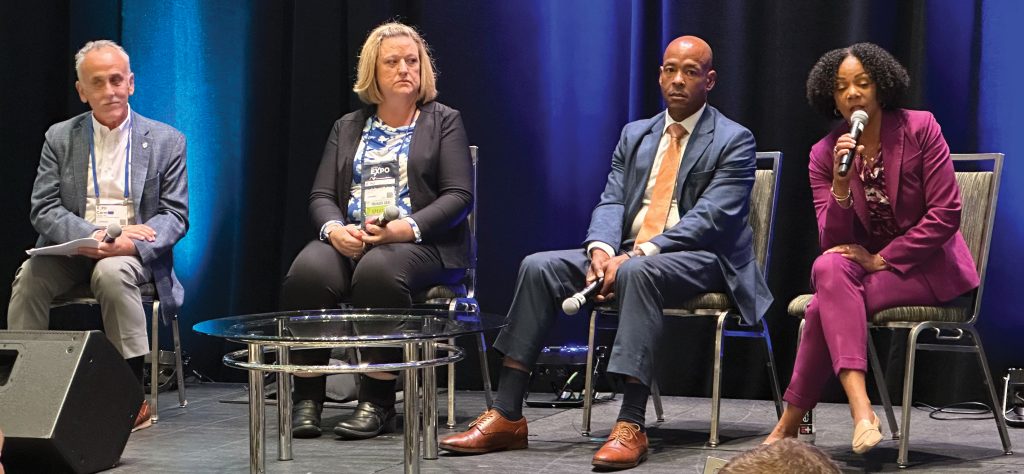CEOs Address Attracting and Retaining Talent
10/20/2023

It should come as no surprise that hiring and retaining a workforce is one of the most difficult challenges facing the public transportation industry. How are some of the nation’s top CEOs addressing this? “We need to attract the best talent we can to our industry, keep it, develop it and then turn them into the leaders of tomorrow,” said moderator Carm Basile, CEO of the Capital District Transportation Authority, Albany, NY. The CEO Roundtable: Data-Driven Workforce Investment examined a number of approaches that leaders of all sizes of organization are taking.
Mountain Line, Flagstaff, AZ, relies heavily on the feedback gained through employee surveys, conducted once or twice per year. Debra Johnson, general manager and CEO, Denver Regional Transportation District, has a bigger task at hand but emphasizes that there is more than just being able to drive a bus for her frontline workers. “I need somebody who can lean into the moment and look at people as people.” Johnson says that need permeates her agency. “People are looking at me to be the law enforcement officer, to be a mental health care clinician, to be a licensed political social worker, to be a drug counselor and to help with houselessness.”
How often have you thought you found the perfect candidate in the interview process, only to learn later that the candidate you hired is completely different? “You have to know how to work well with all the rules you learned in Kindergarten,” said Johnson. “I want to ensure that they’re respectful. I want to ensure that they’re a collaborator.” For that, the company’s behavioral assessment tool has been crucial.
Transit agencies are turning to software as well. Five Points and Predictive Index have been invaluable to leaders in the industry for finding and developing talent. For existing employees, empowerment remains the top way these executives try to promote and develop from within. Mountain Line CEO Heather Dalmolin also says the addition of a “Relief Supervisor” has been a way to find and develop future management from within. The simple things though, still work. “Probably the most important investment we’ve made is just making ourselves available, listening when employees talk and working on policies that address their concerns.”
Jameson T. Auten, chief executive officer, Lane Transit District, Eugene, OR, echoes this sentiment: “Understanding who they are as a 24-hour person helps keep people that likely have other opportunities.”